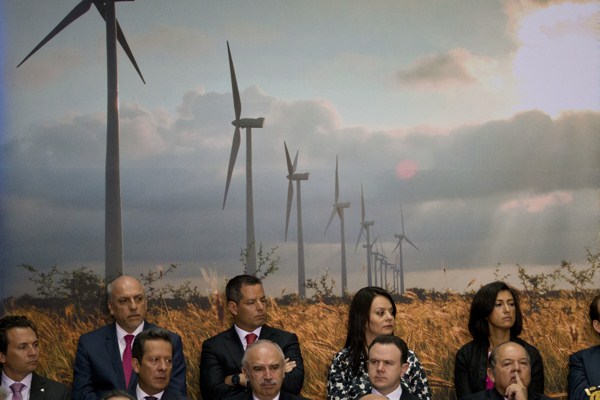On Dec. 20, Mexico will reach its cutoff for the approval of legislation related to President Enrique Pena Nieto’s sweeping energy reforms. Yet while the focus is on Mexico’s oil and gas sector, this deadline is likely to come and go without any serious debate on the future of renewable energy. With its abundance of wind, solar and geothermal resources, the renewables industry should thrive in Mexico. Indeed, many hoped Pena Nieto’s reforms would catalyze it. Instead, Mexico risks missing an opportunity to make good on its commitment to a clean energy future and to tackling and adapting to climate change.
Progress has been made in the year since Mexico passed its historic reforms restructuring the energy sector, opening the industry to private and foreign investment and ending the monopoly of Pemex, the state-owned petroleum company. Most secondary legislation has been passed, new regulatory bodies formed and, on Dec. 11, the government released the contract terms for shallow water bidding as part of its first oil and gas auction. But the same cannot be said for renewable energy. And in a year when ongoing drug-related violence and corruption scandals have exposed the gaps in Pena Nieto’s agenda, lackluster renewable energy initiatives run counter to another image that the Mexican government has worked so hard to build: A champion in the global fight against climate change.
In 2012, Mexico was one of the first nations to pass a climate change law, which promised to reduce carbon emissions by 30 percent by 2020 and 50 percent by 2050. In 2008, the country set national targets to reduce its reliance on fossil fuels. The law aimed to have no more than 65 percent of the nation’s electricity generated by hydrocarbons by 2024, and no more than 50 percent by 2050.

